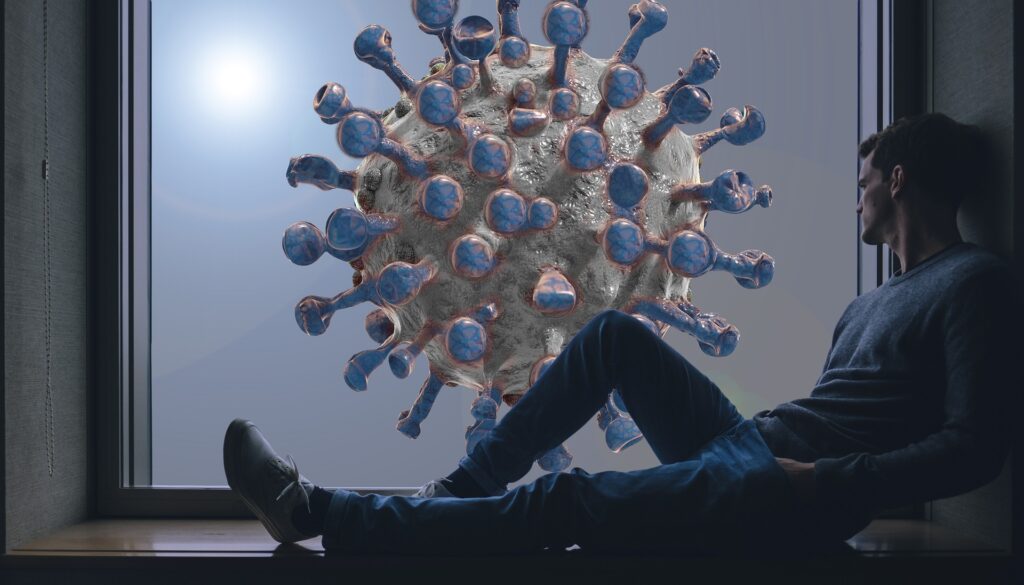
I am coming at this month’s blog post from my position as a human resources professional. No, I don’t play one on TV (even though I record videos for my employees on YouTube); I am one. As you are aware, we are in the middle of a pandemic caused by a virus. We are also, and have been for some time, in a mental health epidemic.
Quoting from Psychology Today, “In the last 50 years, rates of loneliness have doubled in the United States. In a survey of over 20,000 American adults, it was found that almost half of respondents reported feeling alone, left out, and isolated. Further, one in four Americans shared that they rarely feel understood, and one in five people believe they rarely or never feel close to people.”
According to the survey referred to in the Psychology Today article, young people are the loneliest group. It’s not just Americans either. Other studies have shown that like the pandemic, it’s a worldwide phenomenon. England even appointed a Minister of Loneliness to address the issue, with little success. Even so, there is a cure. Apparently, the English aren’t ready to apply it and I don’t know that we are either.
Fred Rogers, aka Mr. Rogers, said it best when he stated, “You know, I think everybody longs to be loved, and longs to know that he or she is lovable. And consequently, the greatest thing we can do is to help somebody know that they are loved and capable of loving.”
Before you think I’ve gone off the deep end and with a bunch of woo woo talk about love, especially in the work environment where we’re supposed to be “professional,” let’s consider what “love” in the workplace might look like. From a business perspective, to take a cold hard look at it, lonely people are not optimized producers. Employees who are experiencing loneliness do not function at full capacity. So if talking about love is too soft for you, then go at it from an optimization of human performance perspective. There are real measurable, mental, and physical health risks associated with loneliness.
So what does love look like in the workplace—or anywhere for that matter? How does one go about showing love in a way that is always appropriate, whether in a business or personal environment? The answer is validation.
Validate them for who and what they are, without judgment. Let them know you hear and see them. This has nothing to do with whether you like or agree with their politics, or lifestyle, hair color, eating habits, or the shirt they are wearing that day. It is about meeting that deep need we all have to feel understood. Validation is not coddling as some fear. Feeling understood is powerful and is something we all crave, even if we have long buried that need in layers of detachment.
Just how important is validation and who needs it? Very and everyone—even those who seem to already have it all. In her commencement address to the 2013 graduating class of Harvard University, Oprah Winfrey reported the following about the need for everyone, regardless of who they were, to feel validated.
“I have to say that the single most important lesson I learned in 25 years talking every single day to people, was that there is a common denominator in our human experience. Most of us, I tell you, we don’t want to be divided. What we want, the common denominator that I found in every single interview, is we want to be validated. We want to be understood. I have done over 35,000 interviews in my career and as soon as that camera shuts off everyone always turns to me and inevitably in their own way asks this question ‘Was that okay?’ I heard it from President Bush, I heard it from President Obama. I’ve heard it from heroes and from housewives. I’ve heard it from victims and perpetrators of crimes. I even heard it from Beyonce and all of her Beyonceness. She finishes performing, hands me the microphone and says, ‘Was that okay?’”
Everyone needs to be understood—to be validated, even those who aren’t so lonely. We do not have the cure for Covid-19 yet, but we do know the cure for the loneliness epidemic. Let’s start using it.
If you like this post—share it. Thanks for reading.
